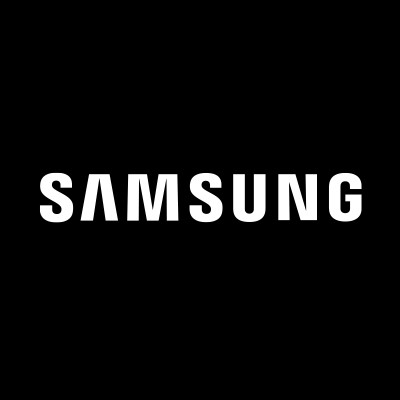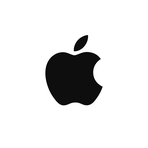Apple’s AI Gamble: The iPhone 16 and the Rising Tide of Competition
September 10, 2024, 10:54 pm
Google
Location: United States, New York

Location: United States, Illinois, Chicago
Employees: 1001-5000
Founded date: 1928

Location: United States, California, San Francisco
Employees: 10001+
Founded date: 1938
Total raised: $6.4B
Apple's recent unveiling of the iPhone 16 marks a pivotal moment in the tech landscape. The event, held on September 9, 2024, showcased not just a new phone, but a bold leap into the realm of artificial intelligence. This is a high-stakes game, and Apple is betting big on AI to revitalize its sales amid fierce competition.
The iPhone 16 is designed with "Apple Intelligence" at its core. This isn't just a marketing buzzword; it's a promise of enhanced capabilities. Siri, Apple's personal assistant, is set to receive significant upgrades. The goal? To make Siri smarter, more intuitive, and capable of understanding the world through the lens of the iPhone's camera. Imagine a digital assistant that can recognize objects and provide context in real-time. That’s the vision Apple is selling.
However, the timing of this launch is crucial. Just hours before Apple’s event, Huawei announced its tri-fold Mate XT smartphone, boasting over 3 million pre-orders. This is a clear signal that Huawei is not just a competitor; it’s a formidable adversary. The Chinese market is hungry for innovation, and Huawei is feeding that appetite. Apple, meanwhile, is grappling with a decline in its market share in China, having fallen out of the top five smartphone vendors for the first time.
The stakes are high. Apple’s iPhone sales accounted for more than half of its staggering $383 billion revenue last year. With a slowdown in sales, the company is counting on AI features to entice consumers to upgrade. But will it be enough?
The iPhone 16 lineup, including the Pro models, retains a familiar design but introduces a customizable button for camera control. It’s a nod to user experience, but it may not be enough to sway consumers who are increasingly drawn to Huawei’s innovative offerings. The Mate XT’s foldable design and AI capabilities are enticing, especially in a market where consumers are willing to pay for cutting-edge technology.
Apple’s AI strategy faces hurdles, particularly in China. The rollout of Apple Intelligence requires regulatory approval, which could delay its impact in a crucial market. Analysts suggest that Apple’s reliance on software advantages may not be sufficient to compete with Huawei’s established presence. The Chinese tech giant has shown resilience, navigating U.S. sanctions while continuing to innovate and capture consumer interest.
As Apple pushes forward, it’s not just competing with Huawei. Rivals like Google are also in the race, showcasing their own AI advancements. Google’s Pixel event in August highlighted features like Gemini Live, a voice assistant capable of real-time conversations. This is a direct challenge to Apple’s dominance in the high-end smartphone market. The competition is fierce, and the landscape is shifting rapidly.
The iPhone 16’s AI features are expected to roll out in phases, starting with a test version in the U.S. next month. However, the timeline for broader availability remains uncertain. Apple has faced delays in launching AI features in Europe due to regulatory concerns, adding another layer of complexity to its strategy.
The health-focused capabilities of the new Apple Watch and AirPods also reflect a broader trend in tech. Consumers are increasingly interested in devices that offer health monitoring and emergency response features. Apple is positioning itself as a leader in this space, but it must continue to innovate to stay ahead.
In a world where technology evolves at breakneck speed, the battle for AI supremacy is just beginning. Companies must create truly personalized and useful AI assistants to win over consumers. The challenge is not just about features; it’s about creating an ecosystem that feels intuitive and indispensable.
As Apple navigates this landscape, it must remain vigilant. The competition is not just about hardware; it’s about software, user experience, and the ability to adapt to changing consumer demands. The iPhone 16 is a step forward, but it’s only the beginning.
In conclusion, Apple’s foray into AI with the iPhone 16 is a bold move. It reflects the company’s commitment to innovation and its recognition of the competitive pressures it faces. The road ahead is fraught with challenges, but if Apple can deliver on its promises, it may just reclaim its position at the forefront of the smartphone market. The battle lines are drawn, and the race for AI supremacy is on.
The iPhone 16 is designed with "Apple Intelligence" at its core. This isn't just a marketing buzzword; it's a promise of enhanced capabilities. Siri, Apple's personal assistant, is set to receive significant upgrades. The goal? To make Siri smarter, more intuitive, and capable of understanding the world through the lens of the iPhone's camera. Imagine a digital assistant that can recognize objects and provide context in real-time. That’s the vision Apple is selling.
However, the timing of this launch is crucial. Just hours before Apple’s event, Huawei announced its tri-fold Mate XT smartphone, boasting over 3 million pre-orders. This is a clear signal that Huawei is not just a competitor; it’s a formidable adversary. The Chinese market is hungry for innovation, and Huawei is feeding that appetite. Apple, meanwhile, is grappling with a decline in its market share in China, having fallen out of the top five smartphone vendors for the first time.
The stakes are high. Apple’s iPhone sales accounted for more than half of its staggering $383 billion revenue last year. With a slowdown in sales, the company is counting on AI features to entice consumers to upgrade. But will it be enough?
The iPhone 16 lineup, including the Pro models, retains a familiar design but introduces a customizable button for camera control. It’s a nod to user experience, but it may not be enough to sway consumers who are increasingly drawn to Huawei’s innovative offerings. The Mate XT’s foldable design and AI capabilities are enticing, especially in a market where consumers are willing to pay for cutting-edge technology.
Apple’s AI strategy faces hurdles, particularly in China. The rollout of Apple Intelligence requires regulatory approval, which could delay its impact in a crucial market. Analysts suggest that Apple’s reliance on software advantages may not be sufficient to compete with Huawei’s established presence. The Chinese tech giant has shown resilience, navigating U.S. sanctions while continuing to innovate and capture consumer interest.
As Apple pushes forward, it’s not just competing with Huawei. Rivals like Google are also in the race, showcasing their own AI advancements. Google’s Pixel event in August highlighted features like Gemini Live, a voice assistant capable of real-time conversations. This is a direct challenge to Apple’s dominance in the high-end smartphone market. The competition is fierce, and the landscape is shifting rapidly.
The iPhone 16’s AI features are expected to roll out in phases, starting with a test version in the U.S. next month. However, the timeline for broader availability remains uncertain. Apple has faced delays in launching AI features in Europe due to regulatory concerns, adding another layer of complexity to its strategy.
The health-focused capabilities of the new Apple Watch and AirPods also reflect a broader trend in tech. Consumers are increasingly interested in devices that offer health monitoring and emergency response features. Apple is positioning itself as a leader in this space, but it must continue to innovate to stay ahead.
In a world where technology evolves at breakneck speed, the battle for AI supremacy is just beginning. Companies must create truly personalized and useful AI assistants to win over consumers. The challenge is not just about features; it’s about creating an ecosystem that feels intuitive and indispensable.
As Apple navigates this landscape, it must remain vigilant. The competition is not just about hardware; it’s about software, user experience, and the ability to adapt to changing consumer demands. The iPhone 16 is a step forward, but it’s only the beginning.
In conclusion, Apple’s foray into AI with the iPhone 16 is a bold move. It reflects the company’s commitment to innovation and its recognition of the competitive pressures it faces. The road ahead is fraught with challenges, but if Apple can deliver on its promises, it may just reclaim its position at the forefront of the smartphone market. The battle lines are drawn, and the race for AI supremacy is on.
